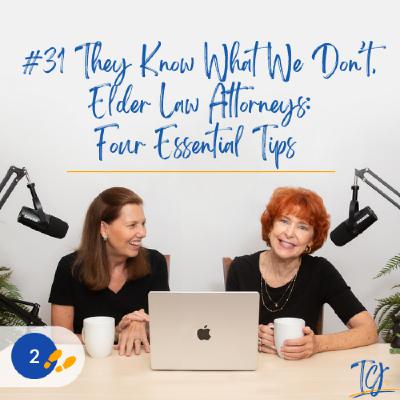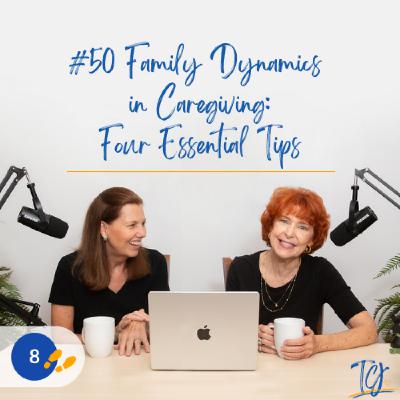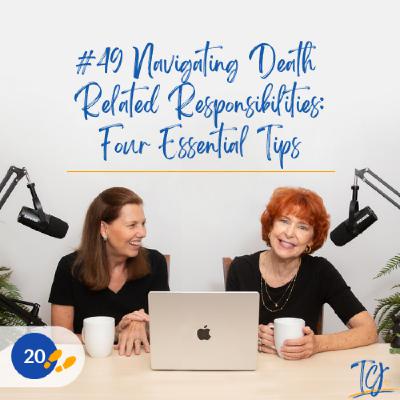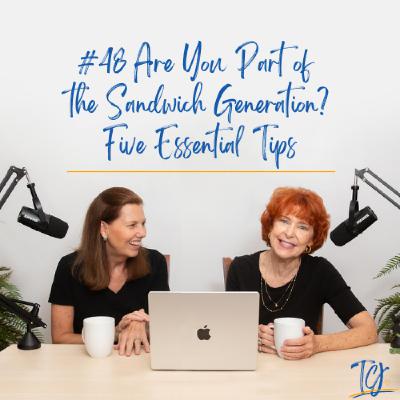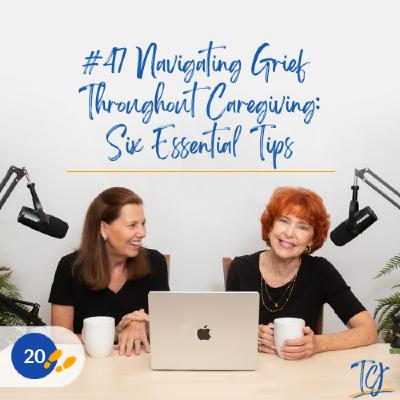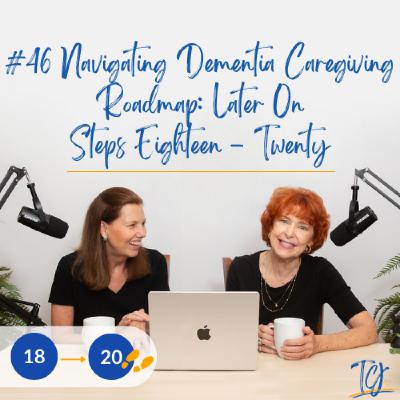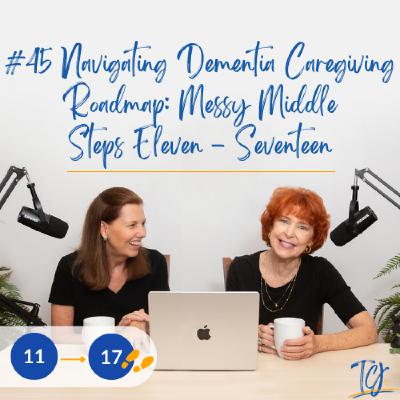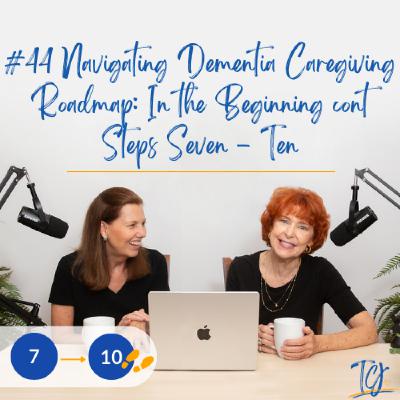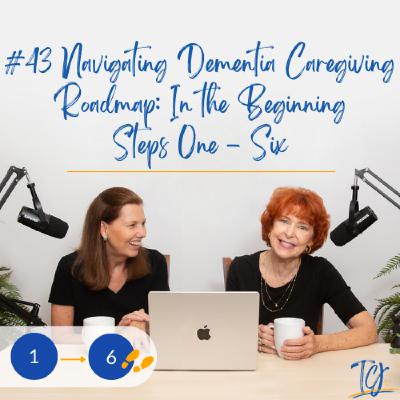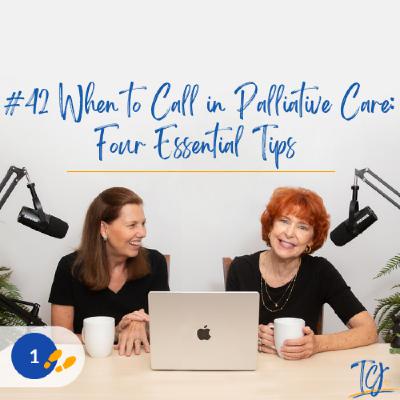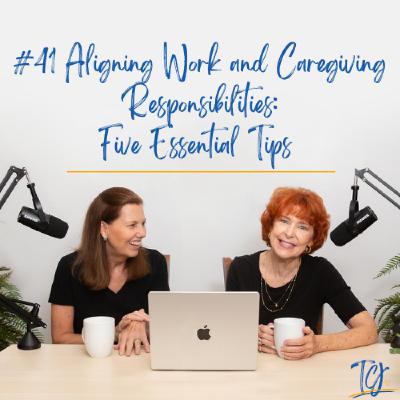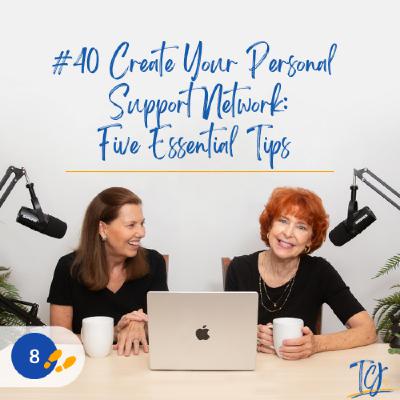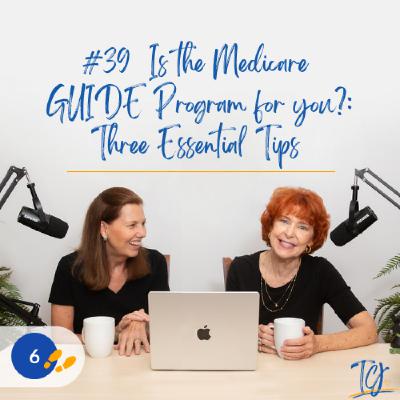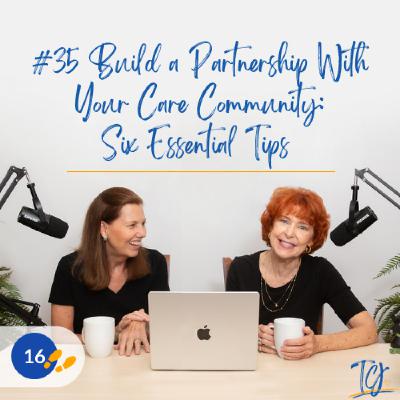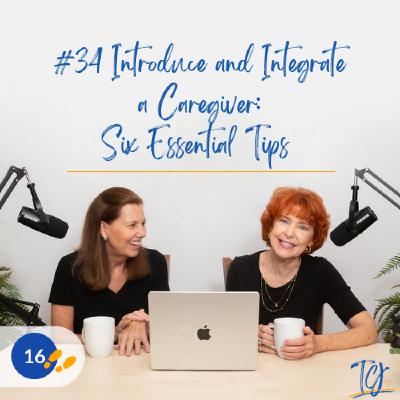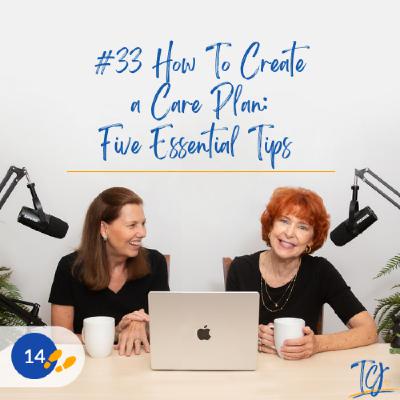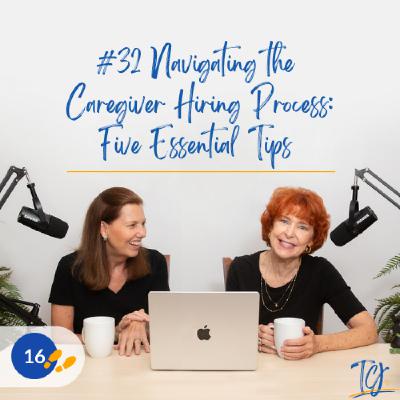They Know What We Don’t, Elder Law Attorneys: Four Essential Tips / Alzheimer’s and Other Dementias
Description
We don't know what we don't know. But elder law attorneys do, and their expertise can be transformational for families facing aging-related challenges. Whether you're dealing with a recent diagnosis, planning for potential long-term care needs, or simply trying to prepare for the future, understanding how and when to work with an elder law attorney can make all the difference in your journey.
In this episode, we'll explore four essential tips for working with elder law attorneys, based on insights from Beth Prather, a board-certified elder law attorney with 32 years of experience, and Courtney Lovejoy, an elder law attorney with a Master of Laws in elder law. Their expertise in Medicaid planning, VA benefits, estate planning, probate, trust administration, and guardianship offers valuable perspective for anyone navigating the complex legal landscape of aging and caregiving.
Connect with us and share your tips:
- Website: https://www.thecaregiversjourney.com
- Donate: https://give.cornerstone.cc/thecaregiversjourney
- Instagram: https://www.instagram.com/thecaregiversjourney/
- Facebook: https://www.facebook.com/TheCaregiversJourneys/
- Linkedin: https://www.linkedin.com/in/suearmstrongryan/, https://www.linkedin.com/in/nancytreaster/
- Email: sue@thecaregiversjourney.com, nancy@thecaregiversjourney.com
Full Show Notes
https://thecaregiversjourney.com/they-know-what-we-dont-elder-law-attorneys-four-essential-tips-alzheimers-and-other-dementias/
Additional Resources Mentioned
- www.NAELA.org The National Academy of Elder Law Attorneys website has a searchable directory. "They have a really good search function where you can type in your zip code and find elder law attorneys within a certain radius," Courtney notes.
- State-specific organizations: For example, Florida has the Academy of Florida Elder Law Attorneys (www.AFELA.org).
- Beth Prather: https://www.gskattorneys.com/attorneys/beth-a-prather/
- Courtney Lovejoy: https://www.gskattorneys.com/attorneys/courtney-van-emmerik-lovejoy/
- Support the nonprofit The Caregiver's Journey: https://give.cornerstone.cc/thecaregiversjourney
Takeaways
Tip 1: How to Find an Attorney Who Specializes in Elder Law
Finding the right elder law attorney requires more than just a quick Google search. Here's how to identify professionals with genuine expertise in this specialized field:
Look for Specialized Credentials
Professional credentials can be helpful indicators of specialized knowledge in elder law:
- Board Certification: I
- Master of Laws (LLM) in Elder Law:
Ask the Right Questions
- How many Medicaid applications did they file last year?
- What percentage of their practice focuses on elder law?
- Do they handle guardianships, Medicaid planning, or VA benefits cases regularly?
Use Reliable Resources to Find Specialists
- NAELA.org:
- State-specific organizations: For example, Florida has the Academy of Florida Elder Law Attorneys (AFELA.org).
- Personal referrals:
Tip 2: Prioritize These Legal Documents and Planning Tools
Once you've found an elder law attorney, certain planning tools should take priority:
- Comprehensive Durable Power of Attorney
- Consider Long-Term Care Insurance
- Limit or Avoid Gifting
- Avoid DIY Planning
Common DIY mistakes include:
- Adding children to bank accounts or property titles
- Giving away assets based on outdated or incorrect advice
- Trying to "hide" assets from Medicaid
Tip 3: Understand Medicaid and VA Benefits Options
A significant part of elder law involves helping clients navigate government benefits for long-term care:
Tip 4: Use This Time to Address Other Important Legal Matters
- Review Beneficiary Designations
- Create an Asset Inventory
- Consider Account Consolidation
- Address Healthcare Decision Documents
- Be Cautious About Adding Others to Accounts or Deeds
- Discuss End-of-Life Preferences

